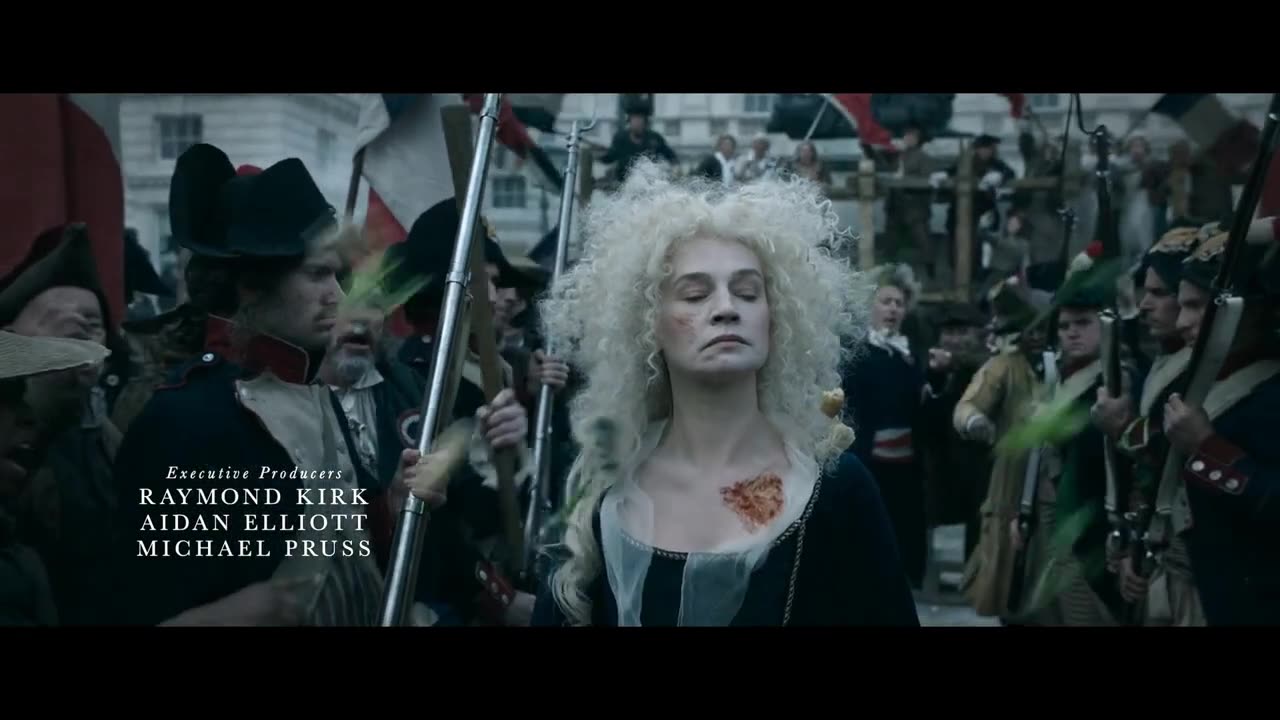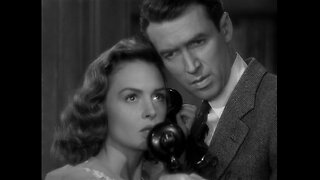Premium Only Content

I've Seen All Good People Roundabout Yes
I've Seen All Good People Album: The Yes Album (1971)
Roundabout Album: Fragile (1971)
by Yes
I've Seen All Good People is an anti-war song.
The line, "Don't surround yourself with yourself" refers to self-righteous behavior; "Move on back two squares" is a chess term meaning to retreat and rethink your position. The lyrics also refer to the queen, which is the most versatile and powerful chess piece. It talks about how news is captured for use by the queen, which uses forces to take control and manipulate troops against the enemy. War is like a game of chess.
In an interview with Yes frontman Jon Anderson explained: "The song is about initiation of yourself into the idea that there is more to life than war and fighting within religions and things like that. So when we were singing 'see all good people,' it's like, 'we can see you all in the audience because you're good people no matter what, and when you're with music you're enlightened, you're good, you're happy, you're excited.' And music is the kingpin of it all. It's not just Yes, it's music that brings people together like no other energy on such a level."
The song is divided into two sections, which are listed on the album as:
a. Your Move (running 3:35)
b. All Good People (running 3:21)
"Your Move" was written by lead singer Jon Anderson, "All Good People" by bassist Chris Squire.
In America, a single version of I've Seen All Good People was released as "Your Move (I've Seen All Good People)," which reached #40 in December 1971. This version credits lead singer Jon Anderson as the sole composer, and was the first chart hit for Yes. When we asked Anderson what he thought of the cut-down release, he replied, "A bit disjointed." Radio stations typically play the full 6:56 version of the song.
Lead singer/lyricist Jon Anderson says that on the "Your Move" portion of this song, he was using the game of chess in this song as a metaphor for life's spiritual challenges. "Life is a game of strategically placed situations presented to you, and you have to learn to live with them and work with them," he said. "Doors are open and sometimes they're closed. It's the idea that we are surrounded by a spirit or god or energy is in time with our understanding of who we are.
With the line, "Send an instant comment to me, initial it with loving care," this song references "Instant Karma," which was a song recorded by John Lennon a year earlier. Lennon was a huge influence on Yes, who covered The Beatles song "Every Little Thing" on their first album.
The line, "Just remember that the gold is for us to capture all we want, anywhere, Yea, yea, yea," refers to the rich and powerful victimizing the weak and poor. The US was taken off the Gold standard by Richard Nixon August 15, 1971 the same year I've Seen All Good People was released.
"Roundabout" was Yes' breakthrough hit and one of their most well-known songs, but the band wasn't looking for a hit at the time. The album version runs 8:29, but it was edited to 3:27 for release as a single, which climbed to #13 on the US Hot 100, giving the band their biggest hit until they eclipsed it with "Owner Of A Lonely Heart" in 1983.
In an interview with Jon Anderson, he explained: "When we first heard the 'Roundabout' single, it was on the radio. We didn't know it was released. We were busy being a band on the road, and then we heard the edit and we thought, 'Wow, that must have been a big pair of scissors to edit that song.' I mean, it was just totally wrong musically. It actually worked and all of a sudden we became famous, we had a hit record and more people came to see us, which was great, because then they would see the progression of music we'd been doing and they'd see us more as a band and not just wait for 'Roundabout.' Because we didn't do that 'Roundabout' in those days. We did the 8-minute version."
Yes lead singer Jon Anderson and guitarist Steve Howe wrote this song near the end of a tour when they were traveling in Scotland. They were in the back of a van going from Aberdeen to Glasgow when the song came together. Awed by the scenery, Anderson came up with lyrics like "Mountains come out of the sky and they stand there," as the mountains would disappear into the clouds.
The band had been touring for about a month, and Anderson was looking forward to his imminent return to London, where he could once again see his wife at the time, Jennifer. The lyrics, "Twenty four before my love you'll see I'll be there with you" indicate that he is just 24 hours away from being with her again. He says "Roundabout" is a "happy song" and describes it as a "Scottish jig."
The lyrics of Roundabout describe a psychedelic-country life, with allusions to driving. A roundabout is a kind of traffic circle that substitutes for a stoplight and confounds tourists who are unfamiliar with them. Traffic patterns don't always make the most poetic lyrics, but the word "Roundabout" sings very well and fits with the theme of the song, as when Jon Anderson came to a roundabout in Scotland, he knew that he was almost home.
Glen Burtnik, who wrote several Styx songs when he was with the band and also co-wrote the songs "Sometimes Love Just Ain't Enough" and "Spirit of a Boy, Wisdom of a Man," tells us that "Roundabout" is a great example of a songwriting technique called "deceptive cadence," which means putting a note or chord where it is not expected. Says Glen: "Even though all the indications lead you to expecting a certain outcome, the writer/arranger intentionally surprises you by going someplace else musically." Another example of this technique is "A Day In The Life" by The Beatles.
The lake mentioned in this song ("In and around the lake...") is Loch Ness, which Jon Anderson saw when he was riding through Scotland. This lake is supposedly inhabited by a rarely seen creature known as the Loch Ness Monster.
Roundabout is known as a showcase for the musicianship of Yes, notably the keyboard work of Rick Wakeman and the acoustic guitar intro played by Howe. Fragile was Wakeman's first album with the band.
The odd sound at the beginning of Roundabout is a piano played back backwards. Their engineer, Eddy Offord, spent a lot of time stringing up tape the wrong way and picking out just the right notes to make it work.
Yes was split into two groups in the 2010s, with Chris Squire, Steve Howe and Alan White leading one faction, and Jon Anderson and Rick Wakeman leading another. Both permutations of the group made "Roundabout" a focal point of their sets, and when Yes reunited for their Rock and Roll Hall of Fame induction in 2017, it was one of two songs they performed. The other, "Owner Of A Lonely Heart," is a song associated with guitarist Trevor Rabin, who was part of the Anderson/Wakeman lineup.
-
 2:05:07
2:05:07
Darkhorse Podcast
11 hours agoWhy Trump Wants Greenland: The 257th Evolutionary Lens with Bret Weinstein and Heather Heying
141K296 -
 LIVE
LIVE
Right Side Broadcasting Network
11 hours ago🎅 LIVE: Tracking Santa on Christmas Eve 2024 NORAD Santa Tracker 🎅
2,703 watching -
 2:48
2:48
Steven Crowder
13 hours agoCROWDER CLASSICS: What’s This? | Nightmare Before Kwanzaa (Nightmare Before Christmas Parody)
195K12 -
 UPCOMING
UPCOMING
Quite Frankly
10 hours agoThe Christmas Eve Midnight Telethon
2.69K1 -
 UPCOMING
UPCOMING
Price of Reason
9 hours agoAmber Heard BACKS Blake Lively Lawsuit Against Justin Baldoni! Is Disney CEO Bob Iger in TROUBLE?
3703 -
 1:01:17
1:01:17
The StoneZONE with Roger Stone
4 hours agoChristmas Edition: Why the Panama Canal is Part of the America First Agenda | The StoneZONE
16.9K12 -
 LIVE
LIVE
LFA TV
14 hours agoLFA TV CHRISTMAS EVE REPLAY
504 watching -
 LIVE
LIVE
tacetmort3m
22 hours ago🔴 LIVE - THE ZONE KEEPS PULLING ME BACK - STALKER 2 - PART 15
814 watching -
 22:45
22:45
Brewzle
11 hours agoI Went Drinking In A Real Bourbon Castle
16.2K1 -
 48:36
48:36
PMG
1 day ago $0.19 earned"Parkland Parent Speaks Out On Kamala Harris Using Victims"
11.1K2